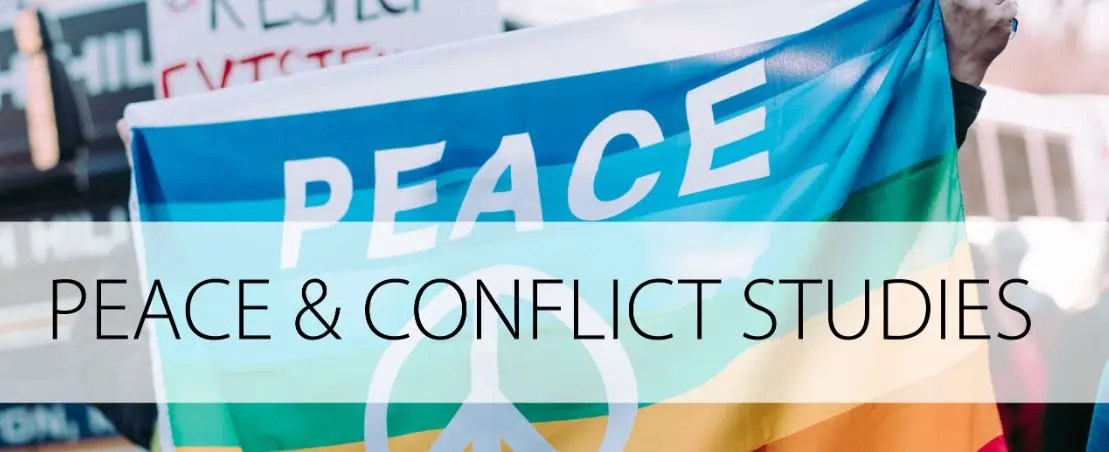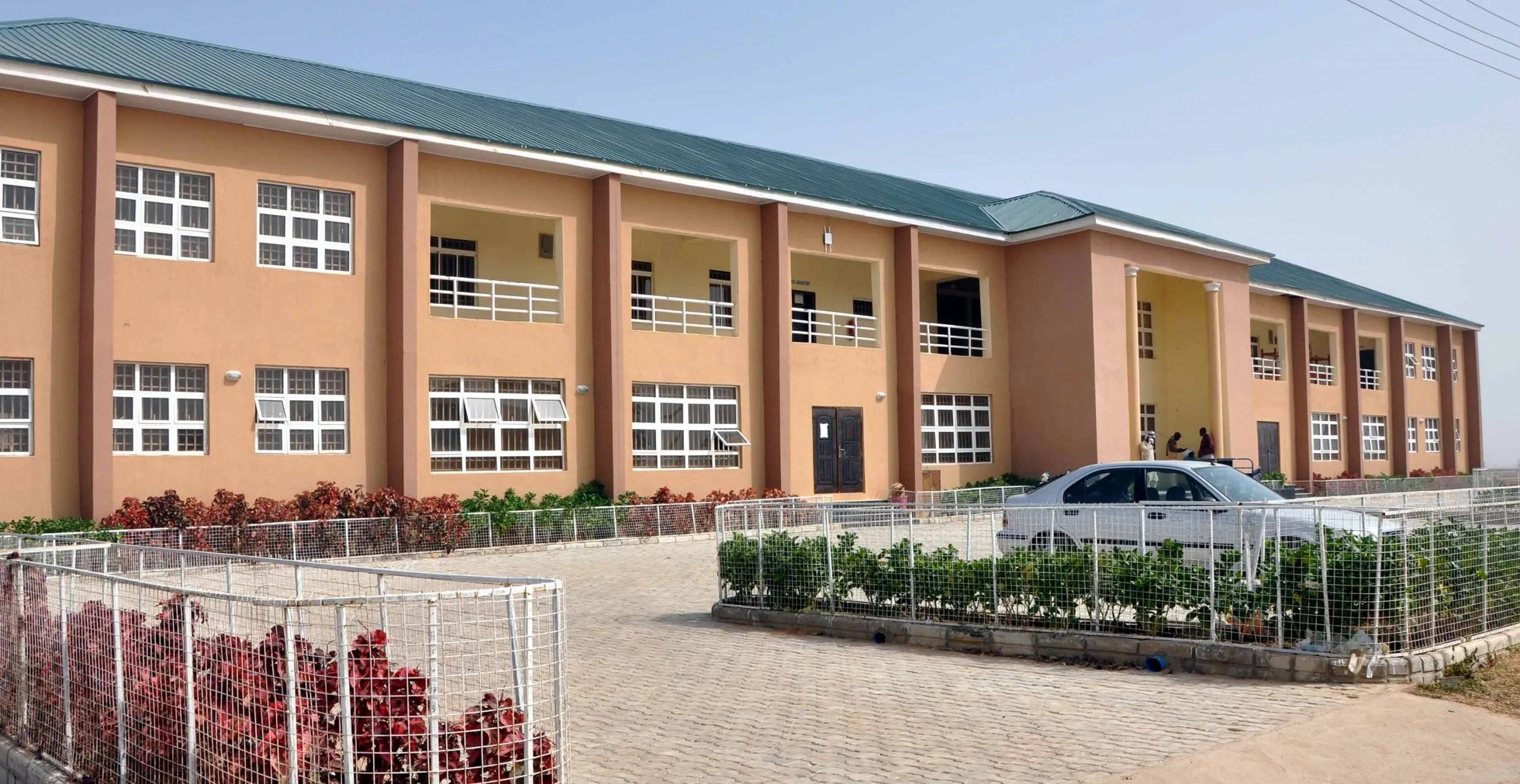
This article is about Peace and conflict studies in Nigeria, the school’s currently offering this course and the admission requirements for Studying this course in any university in Nigeria that offers Peace and Conflicts Resolution. But before we go in-depth into the subject matter, let us define what is Peace and Conflicts Resolution.
It may interest you to know that Peace and Conflicts Resolution is a social science course that identifies and analyzes violent and nonviolent behaviours as well as the structural mechanisms attending conflicts (including social conflicts), with a view towards understanding the requisite processes that lead to a more desirable human condition.
History of Peace and Conflicts Resolution Studies (PCRS)
The history of Peace and Conflicts Resolution dates back to 1919 Peace of Paris after the First world war, where the French, British and American leaders led by Georges Clemenceau, David Lloyd George, and Woodrow Wilson respectively, met to decide the future of Europe and one of the leaders, Wilson proposed a popular Fourteen Points agenda for making peace.
Amongst these included the breaking up European empires into nation states which brought about the formation of the League of Nations with a mission to prevent a re-occurrence and assure of a peaceful future.

This course is offered in not so many universities in Nigeria and the Admission requirements for Studying Peace and Conflicts Resolution in Nigeria is not known to many, thus, the need to identify the JAMB approved O’Level subject combination and requirements, JAMB requirements and the ideal cut off mark for studying this course is highly necessary.
The undergraduate programme for Peace and Conflicts Resolution prepares students well for postgraduate studies in Peace and Conflict, strategic studies, development studies and related fields in reputable higher institutions home and overseas.
This post would be covering the admission requirements for studying peace and Conflicts Resolution in any Nigerian university or higher institution at UTME and postgraduate level, the list of uniersities in Nigeria currently offering Peace and conflict studies and other important requirements needed to study this course.
Under the UTME level, we will be covering both fresh JAMB candidates and Directly Entry requirements for Studying the course.
For postgraduate level, we will be discussing the post graduate admission requirements for studying Peace and Conflicts Resolution at PGD (Postgraduate Diploma) Masters and PhD level as well as the duration of the programe.
Admission Requirements For UTME Candidates
O’Level Requirements: Candidate must have obtained a minimum of five (5) credits in not more than 2 sittings including English, Mathematics and any 3 Arts, Social Sciences, or science subject.
UTME (JAMB) Requirements: Candidates must have a minimum score recommended by JAMB and also meet the post UTME examination requirements conducted by the University. The acceptable UTME subjects are English Language and any other 3 subjects in Arts, Social Sciences, or science.
Admission Requirements For Direct Entry Candidates
- Candidate must possess the Advance Level of General Certificate of Education or its equivalent in at least two subjects.
- In addition to the above, such candidate must have obtained a National Diploma in Public Administration and relevant courses from recognize institution as approved by the senate of the institution of admission.
General Admission Requirements for PGD Programmes In Peace and Conflicts Studies
- The criteria for admission into the PGD programme in Peace and Conflict Studies will be as follows:
- Candidates must satisfy the matriculation requirements of the University including English Language.
- A minimum of 3rd Class Bachelor’s degree in Peace and Conflict Studies or a related discipline awarded by an approved and accredited University.
- HND and/or professional qualifications cognate to Peace and Conflict Studies from a recognized institution with not less than upper credit.
- Candidates must satisfy the matriculation requirements of the University including English Language at the O/level
- Candidates with Bachelor’s degree in Peace and Conflict Studies or related discipline from an approved university with its accredited by the NUC.
- Candidates with a minimum of second class lower degree and a CGPA of 3.00 on a five point scale.
- Candidates with a Post Graduate Diploma degree in Peace and Conflict Studies or from a cognate discipline awarded by a recognized institution with not less than an upper credit.
Duration of Programme for UTME and PG Candidates (Part Time and Full-Time)
- Full-Time PGD shall run for a minimum of two (2) Semesters and a maximum of four (4) Semesters.
- The Part-time shall run for a minimum of four (4) semesters and a maximum of six (6) semesters.
- A full-time Master’s Programme runs for a minimum of 3 semesters and a maximum of 5 semesters.
- Part-time master’s programme runs for a minimum of 6 semesters and maximum of 8 semesters.
- For extension beyond the specified maximum period, a special permission of the Board of Postgraduate School shall be required.
The Admission requirements stated here are for full time and part time studies. Individuals with core interest in this course.
Below are the list of Universities in Nigeria That Offers Peace and Conflicts Resolution and Their Admission Requirements.
list of Universities in Nigeria That Offers Peace and Conflicts Resolution Studies and Their Admission Requirements
ABUAD (Afe Babalola University, Ado-Ekiti)
Afe Babalola University, Ado-Ekiti offers peace and conflict resolution as a course under UTME and Postgraduate level. While candidates for the undergraduate programme are required to have obtained at least 5 credits including English, mathematics and any 3 arts, social sciences, or science subjects. Candidates must also have a minimum scored the minimum JAMB approved cut off mark and meet the post-UTME score and requirements for admission into ABUAD to study this course.
PGD programme in Peace and Conflict Studies require that candidates meet the following:
- Satisfy the matriculation requirements of the institution including English
- Must obtain a minimum of 3rd Class Bachelor’s degree in Peace and Conflict Studies or a related discipline awarded by an approved and accredited University.
- That candidates with HND and/or professional qualifications cognate to Peace and Conflict Studies from a recognized institution with not less than upper credit will be considered for admission.
University of Ibadan (UI)
The University of Ibadan (UI) is known as the first university in Nigeria. UI offers Peace and Conflict studies under M.A, MPhil and Ph.D. Peace building and development, professional masters in negotiation, mediation, and arbitration are also offered under postgraduate level at UI. UI Masters requirement for this course require that a candidate obtains a minimum of Second class upper in any humanities and social sciences course or must have obtained a PGD in Peace and Conflict studies.
Ph.D candidates must have obtained at least a Master’s degree in Peace and Conflict Resolution studies or closely related field.
University of Ilorin (UNILORIN)
University of Ilorin (UNILORIN) will receive application from suitably qualified candidates for admission into her institution to study MA in Peace and Security Studies programme only to candidates with a first degree in any field with a minimum of Second Class Lower.
Such candidates must have obtained a minimum of Credit pass in English Language at O’level and he or she must have at least 10 years of experience in Security sector management.
As for Ph.D programme in Peace and Conflicts studies, candidate must have obtained at least a Credit in English Language at O’level and scored a minimum of 60% in their Master’s degree programme in Peace and Conflict Studies from a recognized University in Nigeria or overseas or the Centre’s Peace and Development Studies Unilorin.
UNIPORT (University of Port-Harcourt
University of Port Harcourt’s Postgraduate admission into this programme, require that a candidate must have obtained a first degree (B.Sc. B.Ed., B.A.) from any recognized university.
Please be informed that preference will be given to candidates with degrees in related courses and to those with work experience in peace and conflict.Also, concession may apply to candidates without first degrees, but with certificates from professional institutions that have demonstrable practical experience in peacekeeping operations and other peace building activities for admission.
Arthur Javis University
To study thus course at Artgur Javis University, the candidate must have obtained a minimum of 3rd Class Bachelor’s degree in Peace and Conflict Studies or a related discipline awarded by an approved and accredited University.
That candidates with HND and/or professional qualifications cognate to Peace and Conflict Studies from a recognized institution with not less than upper credit will be considered for admission.
UNIJOS (University of Jos)
UNIJOS offers Peace and Conflict studies under postgraduate level. MA programme in Peace and Conflict studies is open to candidates with a first degree in any social science related field, in addition, candidates must also have obtained at least a credit in English Language at O’level.
This information provided here should be taken with utmost keenness as it would be a guiding light towards which candidates can easily gain admission into any higher institution in Nigeria where Peace and Conflicts resolution studies is currently offered.
This write up sums it all as it provide in details the admission requirements for studying Peace and conflict studies at UTME and postgraduate levels in any Nigerian university as well as the list of schools offering the course.
Please note that questions are entertained via the comment box below and we shall respond accordingly.




